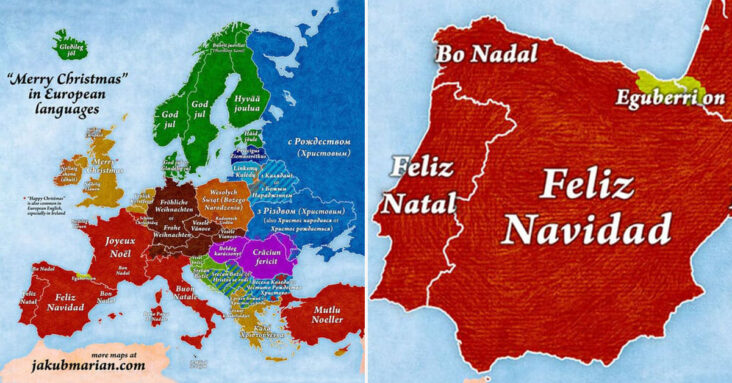It’s almost that time of year to send out Christmas cards and what better way to fool people into thinking you travel than signing Merry Christmas in different languages. This map by Jakub Marian shows different ways different European countries wish Merry Christmas and you can fully use it to your advantage. This map is color-coded and areas on the map that share the same color have a language with the same etymological root.
1.
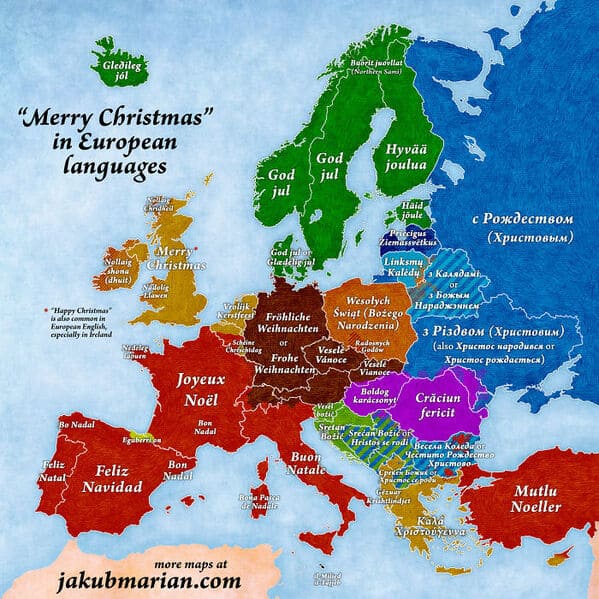
2. All of the green countries use jól, from the Old Norse pagan festival. This is similar to the word Yule in the English language.
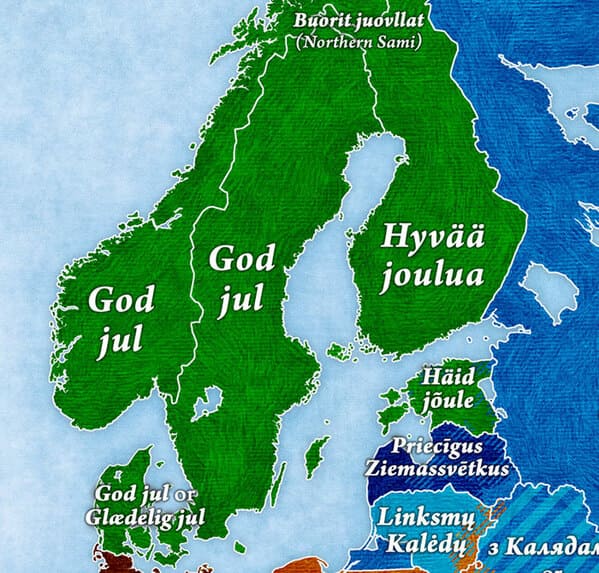
3.
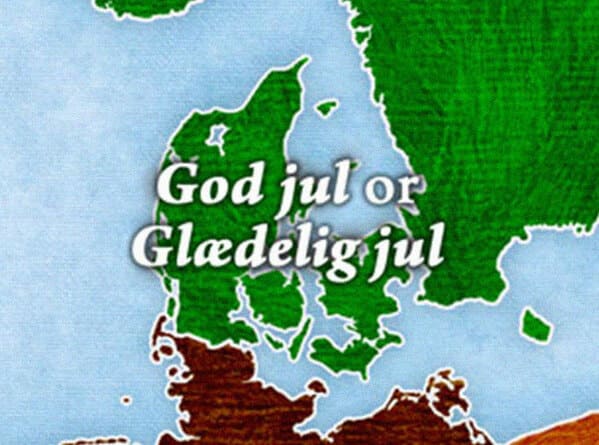
4.
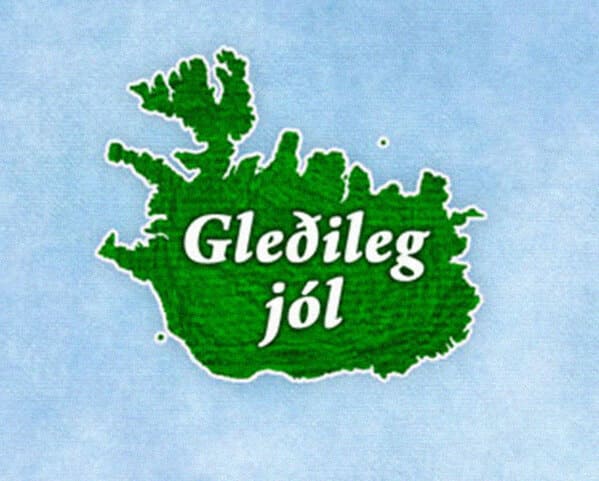
5. The Irish, Welsh, and Scottish Gaelic words are all related to the French Noel from the Romance languages.
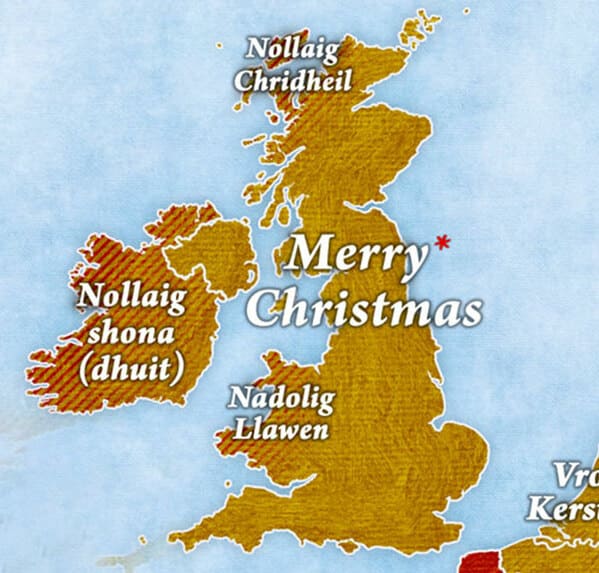
6. Orthodox Christians in Russia celebrate Christmas on January 7th to celebrate the Nativity because of a different ceremonial calendar. Countries that spent most of the 20th century under Soviet control had Christmas and New Year’s Eve merged into one holiday due to suppression of Christmas celebrations.
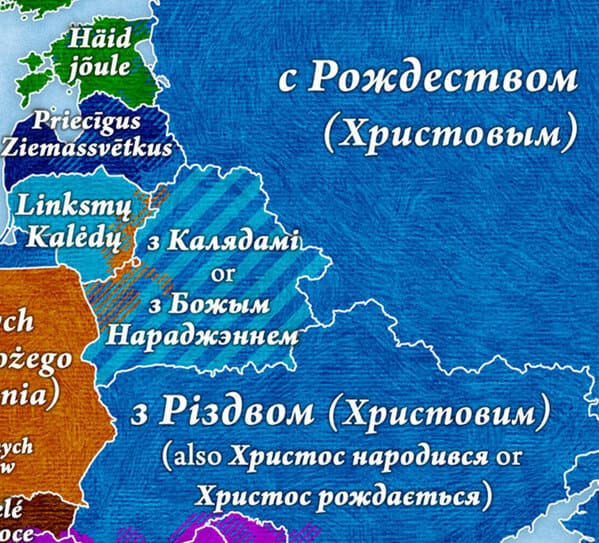
7. The dark reddish-brown countries use the Old German word for “holy night” to wish Merry Christmas.
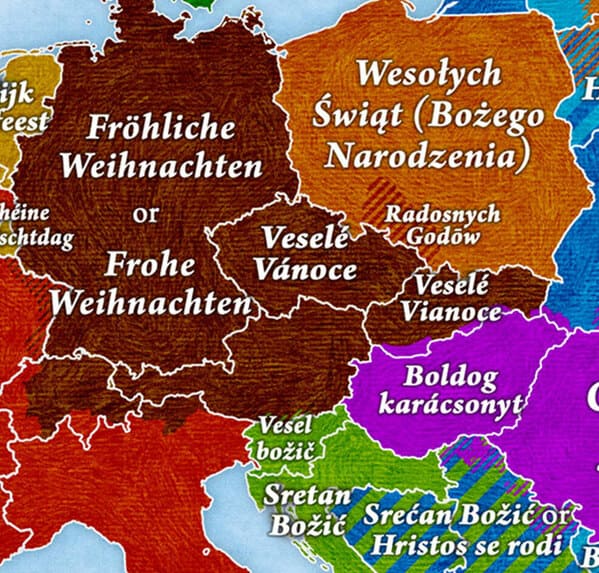
8. Although Romanian and Hungarian are unrelated languages from different families, they both got their Christmas greeting from the same root in Proto-Slavic or Latin.
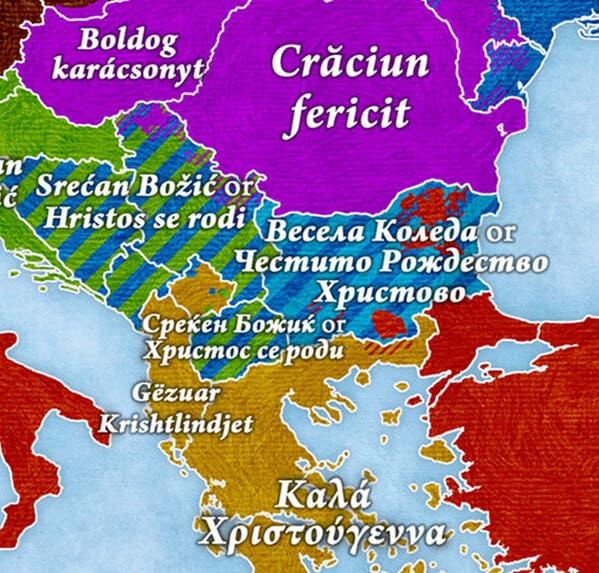
9.
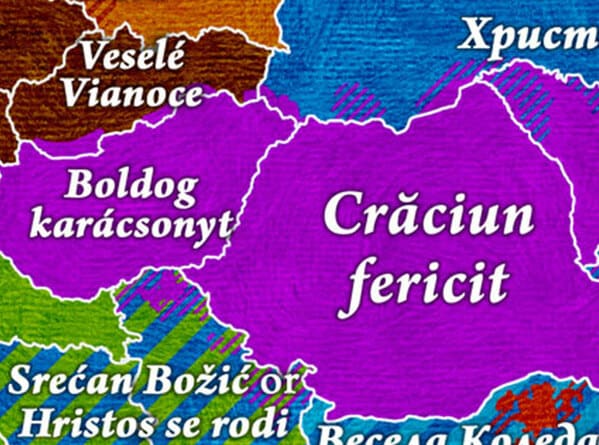
10. The red countries represent Romance languages that use a Latin-based word for the event of the birth of Christ.
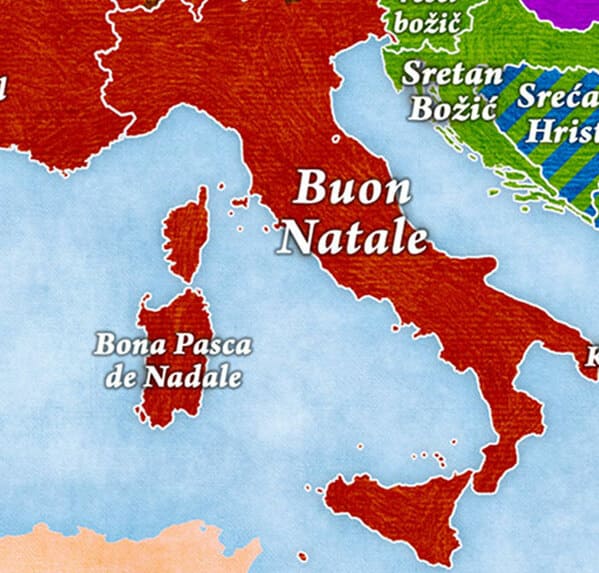
11. Other languages like Celtic and Turkish also derive their terms from Romance languages, which include French, Italian, Spanish, Portuguese, and Romanian, all national languages.
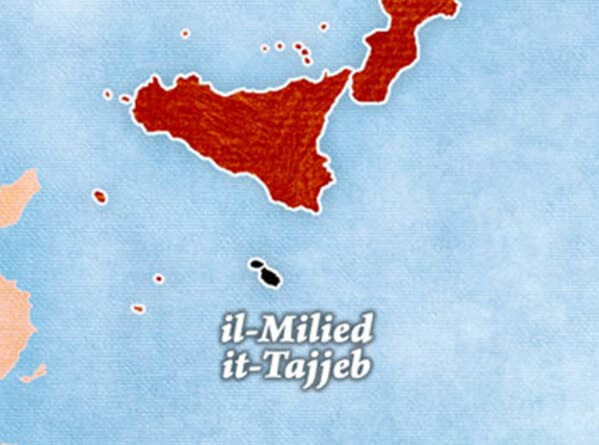
12.
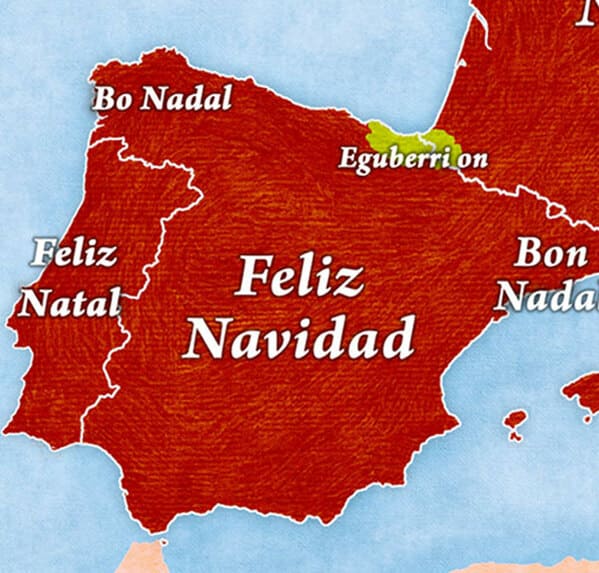
13.
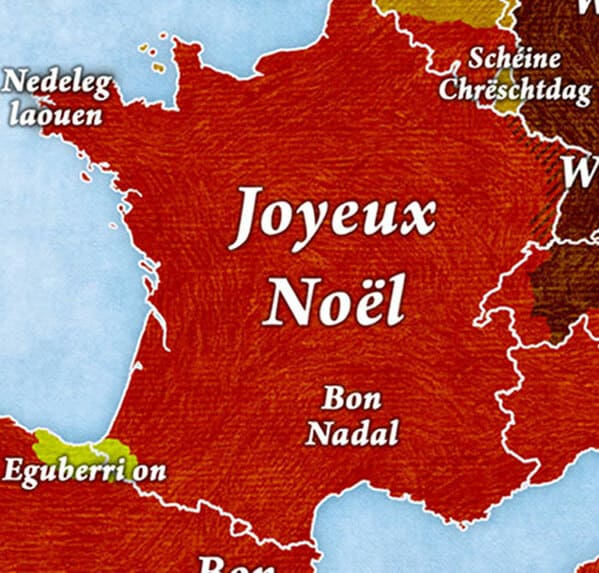
14. Greek is a completely separate branch of the Indo-European languages from Romance languages. The Greek word for Christmas is Christougena or Christougenna, literally meaning “Christ’s birth.” Greek also had an impact on the written abbreviation of Christmas as “Xmas.” The Greeks write the word “Christ” using the cross symbolized by the “X.”
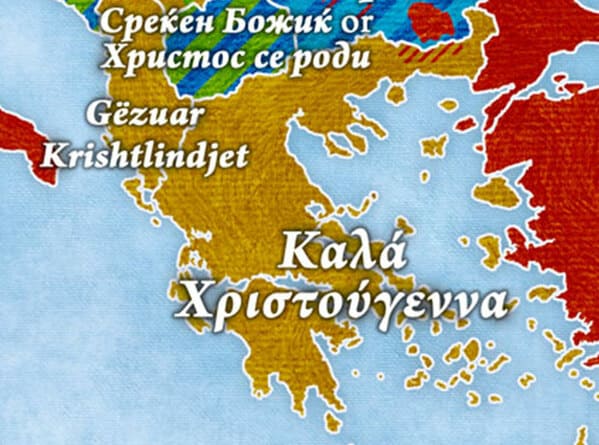
Here are the same phrases as above as a text so that you can copy-paste them:
Albanian: Gëzuar Krishtlindjet
Basque: Eguberri on
Belarusian: з Калядамі or з Божым Нараджэннем
Breton: Nedeleg laouen
Bulgarian: Весела Коледа or Честито Рождество Христово
Catalan: Bon Nadal
Croatian: Sretan Božić
Czech: Veselé Vánoce
Danish God jul or Glædelig jul
Dutch: Vrolijk Kerstfeest
English: Merry Christmas or Happy Christmas
Estonian: Häid jõule
Finnish: Hyvää joulua
French: Joyeux Noël
Galician: Bo Nadal
German: Fröhliche Weihnachten or Frohe Weihnachten
Greek: Καλά Χριστούγεννα
Hungarian: Boldog karácsonyt
Icelandic: Gleðileg jól
Irish: Nollaig Shona + Dhuit (singular) or Daoibh (plural)
Italian: Buon Natale
Latvian: Priecīgus Ziemassvētkus
Lithuanian: Linksmų Kalėdų
Luxembourgish: Schéine Chrëschtdag
Macedonian: Среќен Божиќ or Христос се роди
Maltese: il-Milied it-Tajjeb
Norwegian: God jul
Northern Sami: Buorit juovllat
Romanian: Crăciun fericit
Occitan: Bon Nadal
Polish: Wesołych Świąt (Bożego Narodzenia)
Portuguese: Feliz Natal
Russian: с Рождеством (Христовым)
Scottish Gaelic: Nollaig Chridheil
Serbian: Srećan Božić or Hristos se rodi
Sardinian: Bona Pasca de Nadale
Slovak: Veselé Vianoce
Slovene: Vesel božič
Spanish: Feliz Navidad
Swedish: God jul
Turkish: Mutlu Noeller
Ukrainian: з Різдвом (Христовим)
Welsh: Nadolig Llawen


